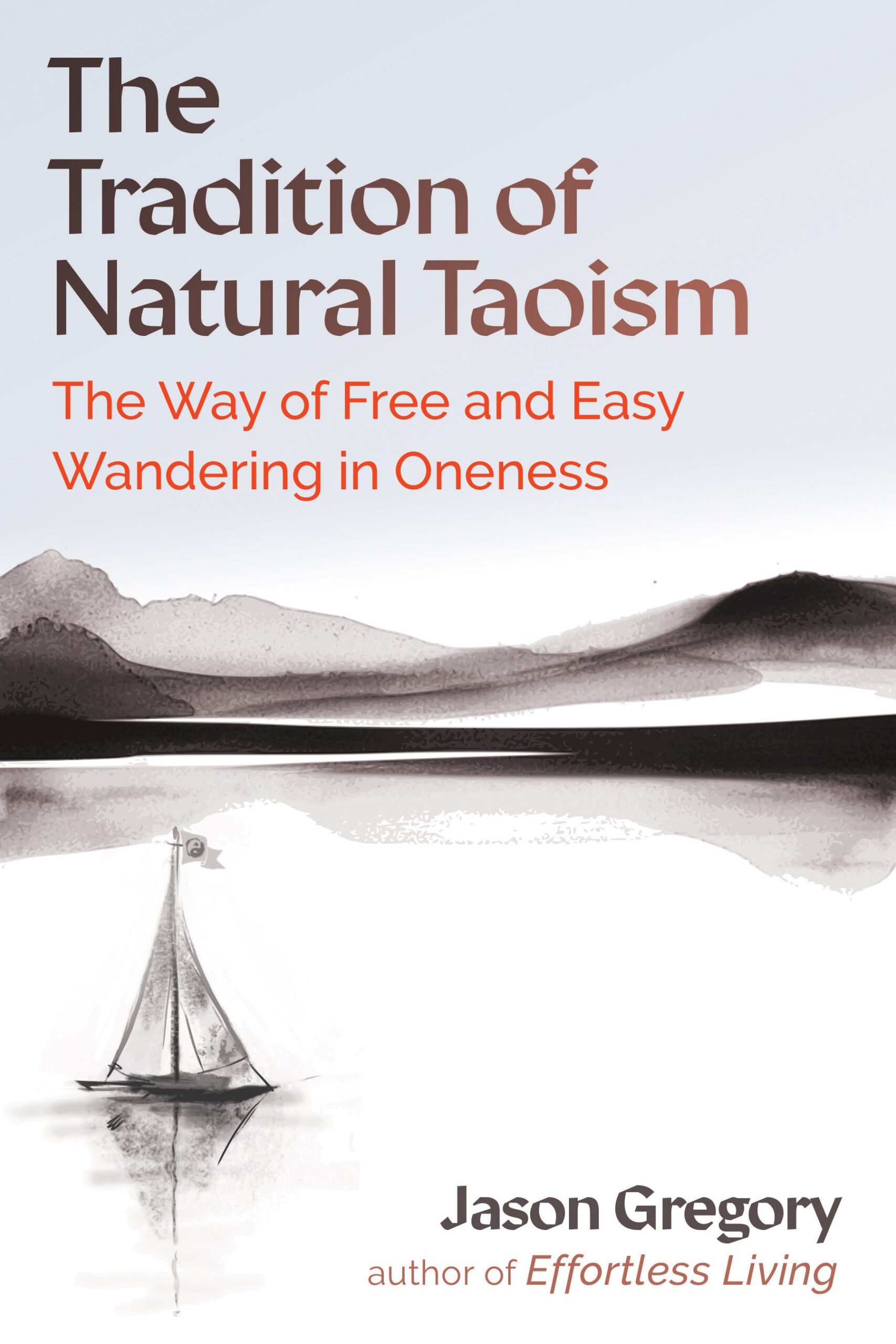Taoist Wisdom for Embracing Life and Yourself
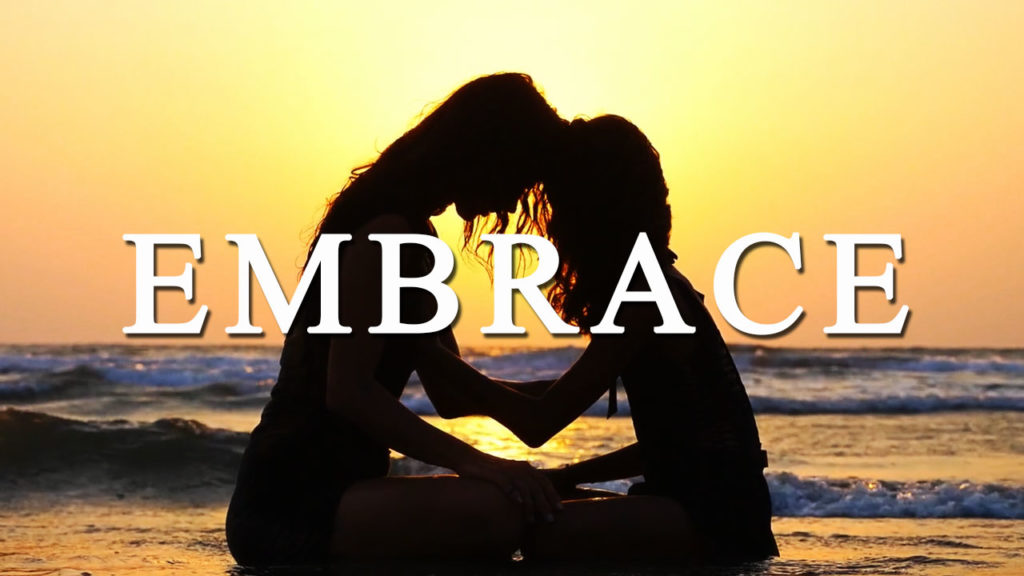
Taoist Wisdom for Embracing Life and Yourself is the fifth video in the series based on my Effortless Living audiobook. In this video, I explain how the heart of Eastern wisdom teaches you to be naturally in the world without rejecting it. Many spiritual paths condemn and judge the world, as if they were enabling one to move beyond desires. But many fail to realize that they are desiring not to desire. Lao-tzu saw all these pursuits of desiring not to desire as nothing more than spiritual pride and a moving away from our human nature. The Taoist perspective is to leave no stone unturned in an embrace of life and yourself. Effortless Living Audiobook https://amzn.to/31uNLQq NOTE: This site directs people to Amazon and is an Amazon Associate member. As an Amazon Associate I earn from qualifying purchases. The pages on this website may contain affiliate links, which means I may receive a commission if you click a link and purchase something that I have recommended.
The Intrinsic Beauty of Nature

The Intrinsic Beauty of Nature is the fourth video in a series based on my Effortless Living audiobook. In this video, I will explain the organic pattern and order of the universe that is a blueprint for nature to express its beauty. This organic pattern originates within an organism as its nature and comes into existence when an organism harmonizes with the Tao. Effortless Living Audiobook https://amzn.to/31uNLQq NOTE: This site directs people to Amazon and is an Amazon Associate member. As an Amazon Associate I earn from qualifying purchases. The pages on this website may contain affiliate links, which means I may receive a commission if you click a link and purchase something that I have recommended.
The Tao of Unconditional Love

The Tao of Unconditional Love is the third video in a series based on my Effortless Living audiobook. In this film I explore what it truly means to love without boundaries. Our love has to exceed our boundaries to include not only our neighbors but also our so-called enemies. Thus if we can be radical enough to live wu-wei, the right social and cultural conditions will emerge that will enable people to realize the Tao, and this will change our world through not striving for change. The act of trying to force change hinders change. Following your own nature is the subtle act of change. It is also the way that love transcends the personal and moves into the universal. The love you share is the love you are. Effortless Living Audiobook https://amzn.to/31uNLQq NOTE: This site directs people to Amazon and is an Amazon Associate member. As an Amazon Associate I earn from qualifying purchases. The pages on this website may contain affiliate links, which means I may receive a commission if you click a link and purchase something that I have recommended.
The Natural Human: Becoming Who You Were Born To Be

The Natural Human is the second film in a series based on my Effortless Living audiobook. In this film I explore what it truly means for a human to be as nature intended us to be, essentially embodying the naturalness we all have within, with no external form of governance needed. The order and pattern of nature is not a forced order, as nature is not bound by external influence or control. The Taoist term for nature is the Chinese tzu-jan (ziran), which means that which is spontaneously of itself. When a natural organism is in harmony with all life, it grows of itself spontaneously. Tzu-jan can only arise of itself without external compulsion. Tzu-jan is the essence of the yoking process found within the spiritual core of many religions, and especially in the origins of Chinese and Indian wisdom. When we withdraw from our conditioned perception of reality, we come back into nature and grow spontaneously in harmony with all other components of life. What would happen if we let go of control? When we leave the animal, plant, and mineral kingdoms alone, they continue to grow and prosper without any interference. What would happen, then, if we left people alone? Effortless Living Audiobook https://amzn.to/31uNLQq NOTE: This site directs people to Amazon and is an Amazon Associate member. As an Amazon Associate I earn from qualifying purchases. The pages on this website may contain affiliate links, which means I may receive a commission if you click a link and purchase something that I have recommended.
Trust the Universe: Taoist Wisdom for Living in a Peaceful World
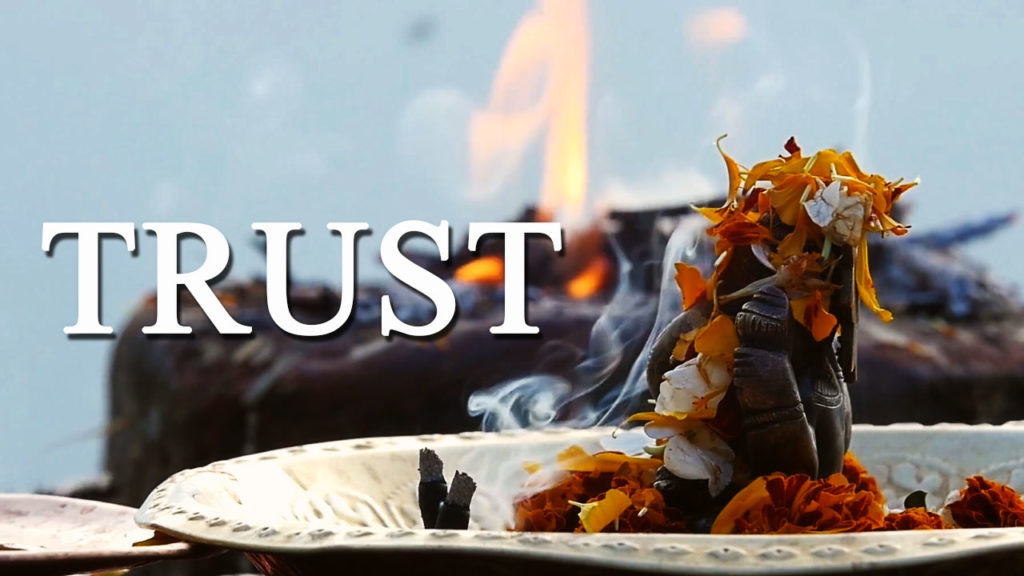
Trust the Universe is the first video in a series based on my Effortless Living audiobook. In this video, I explore how and why we should trust the universe from a Taoist perspective. The Tao can only make use of you when you are empty of all that blocks a union between yourself and the universe. The peace that resides in the unity of trust allows the individual to harmonize with the world. This not only brings the light of Tao into the world but also guides and helps the individual along their journey through life. When we trust, the universe answers us through the resonance of our experience. The feeling of oneness brings the individual back into accord with the function of the universe. Effortless Living Audiobook https://amzn.to/31uNLQq NOTE: This site directs people to Amazon and is an Amazon Associate member. As an Amazon Associate I earn from qualifying purchases. The pages on this website may contain affiliate links, which means I may receive a commission if you click a link and purchase something that I have recommended.
Why You Are Not Blessed (no one is more special than anyone else)

In this episode of Enlightenment Today, I will speak about if we are blessed. Many people proclaim to be blessed based on their fortunate experiences in life which are usually based on pleasure. Personally claiming to be blessed is purely egotistical, especially considering you are implying that you are more special than someone else. From a spiritual perspective, feeling that one is blessed over others is the result of a me-centered spirituality based on individualism. This is a subtle psychopathy many people exhibit. But this does not mean we are not blessed. Once we realize that we are no more special than anyone or anything else, then we will discover that what we all are deep down within is the only blessing we need and is actually the only one we receive in life.
Lao-tzu vs Confucius: The Ultimate Sage Showdown
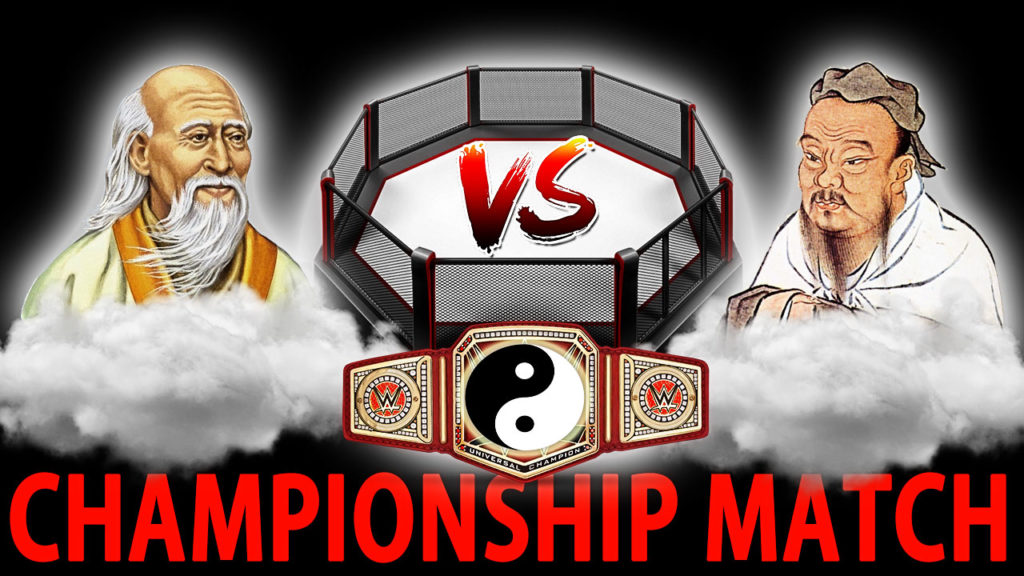
In this episode of Enlightenment Today, I will speak about the ultimate sage showdown between Lao-tzu and Confucius. Both sages have diametrically opposed philosophies and viewpoints on the nature of humans and the irreducible essence of the Tao. These differences are showcased in the opposing metaphors of Lao-tzu’s uncarved block and Confucius’s carving and polishing. Both metaphors try to dissect whether or not humans are naturally good or if we are naturally beasts. These differing views influence our perception of the nature of the Tao, making us believe that either the Tao is natural to the universe with no need for effort or that the Tao needs to be induced through discipline and self-cultivation. Who will win this ultimate battle for sagehood supremacy?
Lao-tzu’s Wisdom on Artificial and Natural Desires
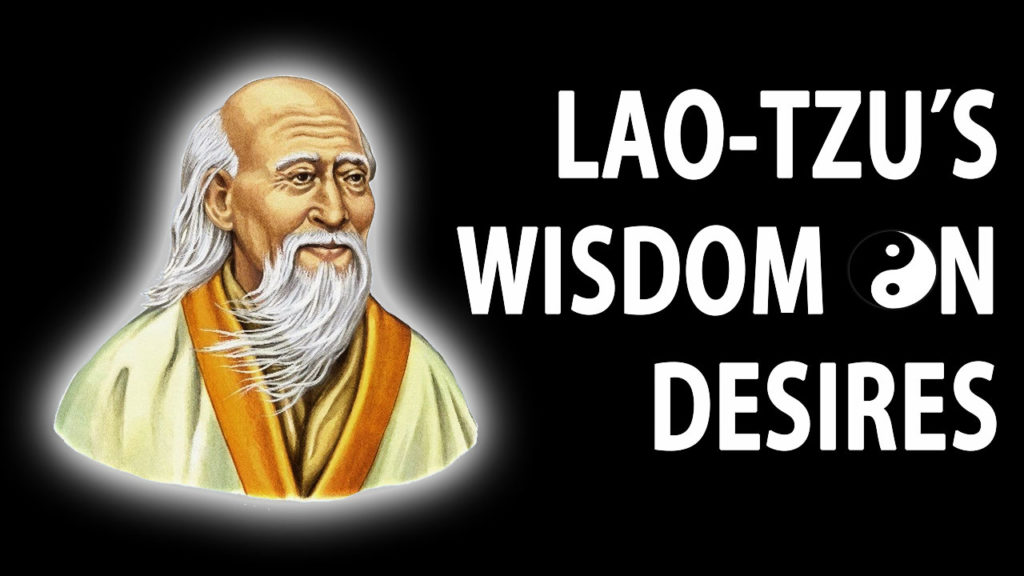
Lao-tzu’s Wisdom on Artificial and Natural Desires In the Tao Te Ching, Lao-tzu makes a distinction between “the desires of the eye” and “the desires of the belly.” He recommends that we revert back to one over the other. In chapter 12 of the Tao Te Ching Lao-tzu explains: The five colors blind our eyes. The five notes deafen our ears. The five flavors deaden our palates. The chase and the hunt madden our hearts. Precious goods impede our activities. This is why sages are for the belly and not for the eye; And so they cast off one and take up the other. The word “five” as it appears in this chapter can be replaced with extravagant or fancy, because five refers to our tendency to focus on sensual pleasures rather than moderation. The sage’s advice is to go back to the desires of the belly over the desires of the eye. But what are the desires of the belly and eye that Lao-tzu mentions? First of all, what are the desires of the eye that Lao-tzu warns us against? The Desires of the Eye and Modern Culture The desires of the eye are the things that you can see far away but you don’t possess. The desires of the eye are the artificial needs created by society, which keep us chasing and hunting a life that is not ours and this in turn “maddens our hearts,” to use Lao-tzu’s words. These desires are insatiable and practically infinite. We know these desires all too well because our modern culture promotes the desires of the eye as the template of a successful life. Think of how important Madison Avenue and the advertising industry are supposedly to modern culture. Modern advertising creates these new artificial desires through marketing. They promote the desires of the eye and this in turn creates inauthentic people, which is why Lao-tzu believes these desires are dangerous. A growing swell of people, especially among the youth, will stop at nothing to be famous or have social success. But both fame and success are artificial needs planted in our mind. Striving after such artificial desires suppresses our true nature. As a result, we become a soundbite generation with no depth, where we always swim in the shallows. Being famous, then, becomes more important than integrity, arrogance is mistaken for humility, and marketing is more important than knowledge and wisdom. We only have to see what nonfiction books are bestsellers and what films are the highest grossing to realize that we’ve built an empty culture with no depth. Granted, some few worthy books and films can get moderate exposure and reach a wider audience, but this is very rare. And last but not least, wealth is mistakenly associated with success. The symbol of success, then, is wealth, which either consciously or unconsciously motivates many people to do what they do in life. This is just the nature of a shallow culture. As a result, we’ve got this new phenomenon of people striving to be entrepreneurs for the sake of being one. So, an entrepreneur then is someone who is just a motivation speaker for other people to become motivational speakers. This empty striving just to be noticed is not natural entrepreneurship. True entrepreneurship just happens naturally resulting from hard work, a brilliant idea, and perfect timing. Think of Steve Jobs, Elon Musk, Jeff Bezos, and so on. None of these people set out to become an entrepreneur or have wealth and fame. All three acted on a brilliant idea that they believed in and now they reap the rewards. In a culture driven by the desires of the eye, we get in the bad habit of trying to mimic someone else’s achievements as if this is a sure-fire path to success. We are always comparing our lives to others and this breeds inauthentic people. We try to emulate other people we believe are on a pedestal. On top of this, we also try to live up to social norms which, in the end, inculcate within us a fake sincerity enacted by our role in the world and this is not who we truly are beneath our social and cultural conditioning. This is why we feel a certain stench about some people’s sincerity and their over the top attitude towards being politically correct. German philosopher Martin Heidegger explained that when we are enacting a certain role with fake sincerity then we are driven by “they,” meaning the expectations of other people and culture. As a result, we are not operating from our original nature, which is our deep-down raw self, minus its egotistical conditioning. Most people never encounter this raw deep egoless nature because people are too busy trying to be somebody important and trying to acquire wealth. We are always trying to keep up with the Joneses or get ahead of them, and this attitude eclipses our true nature. As a result, we have a world that is predominately hypnotized by consumerist thinking. Modern culture, and specifically advertising, sell us this idea of how our lives should be, such as the American dream, which fuels our consumerist habits. Marketing ramps up what we think we need, but in truth we don’t need any of what they’re selling. We are fooled into believing that we need the latest smartphone, car, clothes, haircut, computer, television, and whatever else is deemed trendy by advertising. We also think we need to be famous or known and respected in some sort of way, even if in truth we’ve accomplished nothing to gain such notoriety. All of these artificial desires are built on the lie that we actually need all this rubbish. The fact of the matter is you don’t need any of it. And I’m going to let you in on a little secret that all these great motivational speakers won’t tell you, not everybody can have financial success or fame, and not all
Kali Yuga: The Spiritual Degradation of Humanity

In this episode of Enlightenment Today, I will speak about the dark age of the Kali Yuga. In the Hindu cycles of time known as the Yugas, the Kali Yuga represents the spiritual degradation of humanity. This age is commonly known as the age of darkness or the age of ignorance, where our mind is drawn primarily to the material world and an individualism that is subtly influenced by our survival instincts. We have a blind ignorance of the world within us, our nature as pure consciousness. And no surprises, we are living in the Kali Yuga and are starting to see in other people and also feel within ourselves the effects of this age. As a result, we lack the moral fiber and mental concentration necessary to pursue the path of liberation. But fortunately for all of us, after Krishna left this world, signifying the beginning of the Kali Yuga, some enlightened sages could foresee our future and they wrote the Puranas, Tantras and other scriptures to serve our spiritual needs in this dark age. In this episode you will learn about the negative impact of the Kali Yuga and how also to counter its effects so that you bring your awareness back to the ultimate path of liberation.
Vairagya: The Practice of Dispassion Towards the World
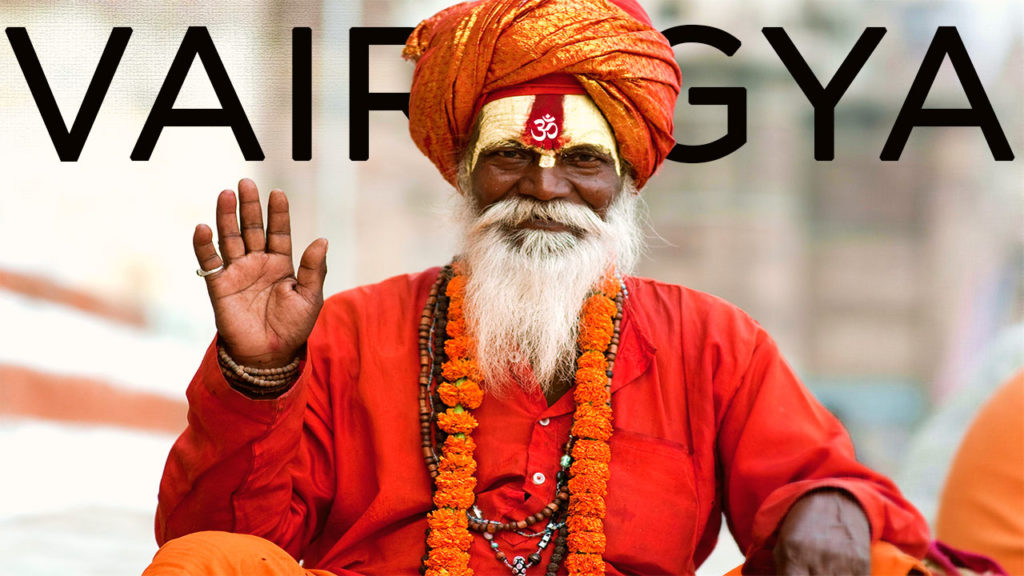
In this episode of Enlightenment Today, I will speak about the practice of vairagya in Hindu philosophy. Vairagya is a term that can be translated as dispassion, detachment, or renunciation. Someone who practices vairagya has a dispassionate attitude towards the pain and pleasures of the world. Vairagya refers to an internal state of mind rather than an external lifestyle and this is why it can be practiced by one engaged in family life and career as it can be by a renunciate. But the deepest benefits are often experienced by a renunciate sage. Even though the practice of vairagya is a rejection of all the suffering in the world, it does not mean suppression of or developing repulsion for material objects. By the application of the practice of viveka (spiritual discrimination or discernment) to life experience, the spiritual aspirant gradually develops a strong attraction for the true Self (Atman), which is the inner spiritual source of fulfillment and bliss (ananda). As a result, limited attachments and desires in the world fall away naturally. The great sages advocate vairagya as a skillful means to achieve liberation (moksha), the realization that Atman is Brahman.

